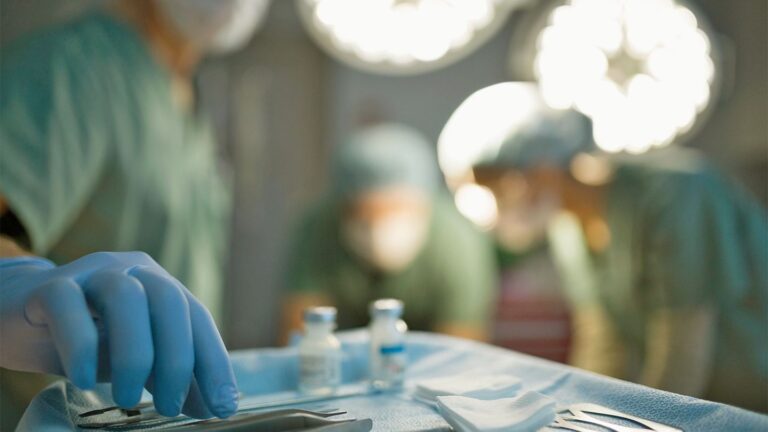
When people need repeat surgeries to fix issues with a hip or knee implant, infections are often the culprit. Now, a biotech startup says it has a solution — a way to alter the surface of implants so they repel bacteria.
The biotech company, DeBogy Molecular, is developing technology known as antimicrobial surface modification that’s designed to kill bacteria that can grow on the outside of surgical implants and cause infections. In early lab tests in mice, this technology appeared to wipe out what’s known as bacterial biofilm — colonies of microorganisms that coat the surface of surgical implants.
“The promise of a new, disruptive technology that can permanently protect the surface of an implantable device from the formation of dangerous bacterial biofilm, without the use of toxic chemicals, coatings or even antibiotics, is truly transformational,” Wayne Gattinella, CEO of DeBogy Molecular, said in a statement announcing the preliminary lab test results.
“DeBogy technology has the potential to save lives and dramatically improve the quality of life for millions of people, young and old,” Gattinella said.
Majority of Healthcare Infections Are Related to Surgical Implants
More than half of the healthcare-associated infections in the United States each year are caused by infections related to surgical implants, according to the company.
Infections are the culprit in roughly 2 of every 5 total knee replacement surgeries that fail, according to the American Academy of Orthopedic Surgeons (AAOS). And about one-third of total hip replacements fail due to infections, previous research suggests.
How the Test Was Conducted
To test the potential of new technology to prevent the development of bacterial biofilm, scientists placed titanium surgical implants in 121 mice. After surgery, researchers injected methicillin-resistant Staphylococcus aureus (MRSA) into the operative site without giving mice any antibiotics to help prevent infection.
Seven days later, mice that had implants made with the new technology had 99.9 percent less bacterial biofilm develop than the mice that had untreated implants.
In addition, the amount of bacteria found in tissue surrounding the implants was 99.8 percent lower in mice that received implants made with the new technology. Mice with treated implants also had surrounding tissue that was healthier overall, with less inflammation and damage to connective tissue and blood vessels.
These study results are preliminary, and results from early tests in mice are often a poor indicator of how well new medical technology will work in humans. The study results were also announced by the company, not published in a medical journal and reviewed by independent experts.
The findings will be presented at the North American Spine Society (NASS) meeting in October.